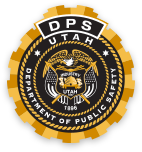Law Enforcement as a Career – Police Officer/Deputy Sheriff
LOCAL AGENCIES – Police Officer / Deputy Sheriff
Everyone knows what a cop does, right? Probably to a certain extent. If you’ve ever received a traffic ticket then you know of at least one duty they perform. But that’s an awfully narrow view of what a police officer does, and “narrow” is not a word you should use in connection with this job.
If you like variety you’ll be well suited for police work. This is especially true for that first year on the force, the time when you are being exposed to as many different aspects of the job as humanly possible. With police work, you’ll never be absolutely certain how your day may turn out. Your shift may start out with a bang when your first call propels you down an alley after a robbery suspect, and it may end with the tedious task of lifting a thumbprint from the rear view mirror of a stolen car. You can rest assured that no matter what you do, you’ll write reports galore at the end of the shift.
Speaking of writing reports, have we mentioned yet that law enforcement officers, from every agency, do an awful lot of writing? Do yourself a favor and start paying attention in English class.
Realistically, you must expect to start at the bottom when you consider joining a police force of any size. If your main interest is in becoming a detective, you’ll get there eventually, but not before you get the “street smarts” that only experience will provide. Chances are, your first assignment will be to the patrol division.
Patrol officers do exactly what their title implies: patrol a designated area, usually by car or on foot, and in some cases by motorcycle, bicycle, or horseback. You may work alone or with a partner, depending on the nature of your assignment and the size of the police force. Typically, you’ll work 40-hour weeks on rotating shifts: this figure, however, doesn’t include overtime or required court appearances. In some cases you may be offered the chance to work an extra shift, depending on the needs of the department.
Some of the duties of a patrol officer include:
- traffic control
- crowd control
- response to 911 calls
- fingerprinting
- securing the scene of a crime
- interviewing witnesses, victims, and suspects
- handling domestic disturbances
- making traffic stops
- subduing and arresting suspects
